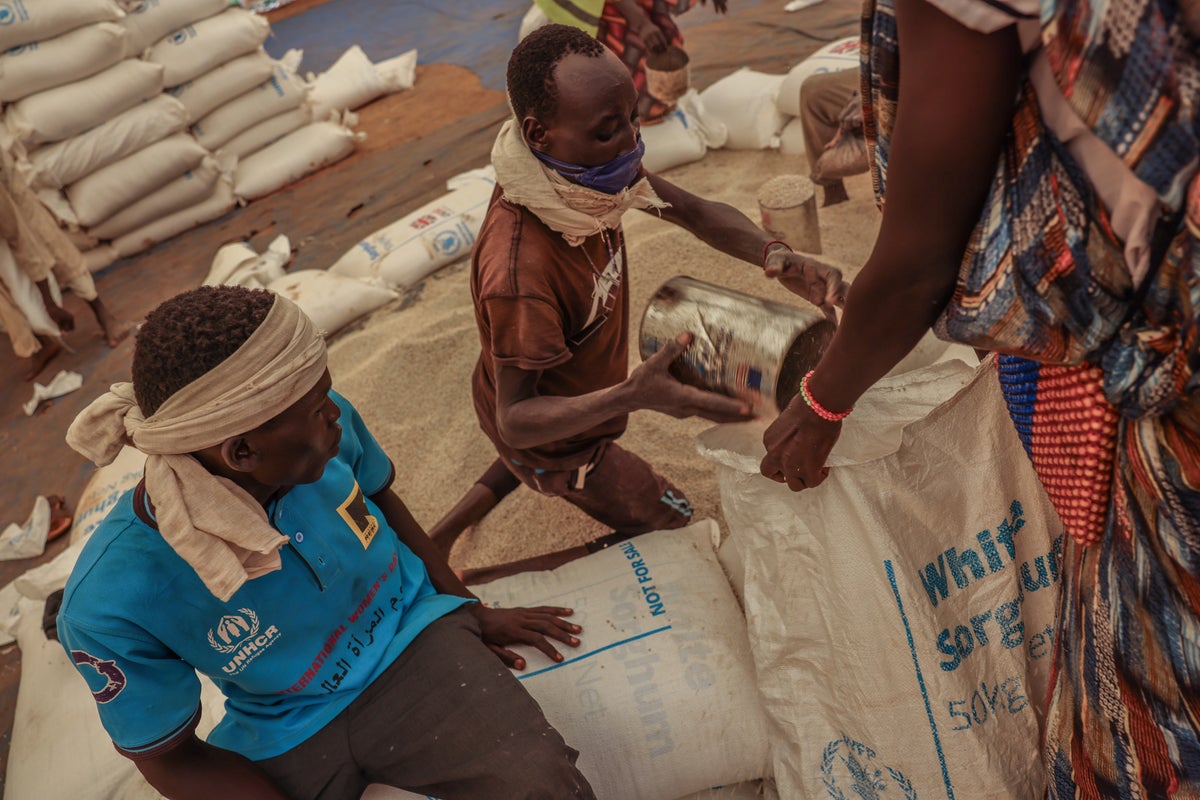Top Stories
Surge in Kidnappings of Aid Workers Alarms South Sudan Agencies

The number of aid workers kidnapped in South Sudan has more than doubled in 2025, raising significant alarms among humanitarian organizations. According to two senior officials from international aid groups, over 30 aid workers have been abducted this year alone, compared to previous years. This sharp increase adds to concerns regarding the safety of aid personnel and the continuation of critical humanitarian services in a nation grappling with one of the most severe crises globally.
The surge in kidnappings coincides with escalating violence in South Sudan, where clashes between the national army and opposition factions have intensified. This unrest marks one of the worst periods of violence since the fragile peace agreement established in 2018, which aimed to end a civil war that resulted in approximately 400,000 fatalities. Analysts suggest that the increase in abductions for ransom represents a troubling new trend in a region already notorious for dangers faced by aid workers.
Kidnappings Linked to Rising Violence
According to humanitarian officials speaking anonymously due to security concerns, the rise in kidnappings is indicative of the deteriorating situation on the ground. “The biggest fear is that this could become a countrywide issue,” stated Daniel Akech, an expert with the International Crisis Group. There is growing speculation around the future leadership of President Salva Kiir, particularly as concerns about his health intensify.
In a troubling incident, aid worker James Unguba was kidnapped last month in Tambura, located in Western Equatoria state. Sadly, he died in captivity on September 3, 2025, with details surrounding his death remaining unclear. Sources indicate he was abducted by individuals wearing national military uniforms. The military, when approached for comment, stated they had no information regarding the incident.
The ongoing violence not only poses significant risks to individuals but also disrupts crucial aid operations. Humanitarian organizations report that the kidnappings threaten life-saving services for hundreds of thousands of vulnerable individuals in remote areas along South Sudan’s borders with Uganda, the Democratic Republic of Congo, and the Central African Republic.
Impact on Humanitarian Operations
In July, the medical charity Doctors Without Borders, known by its French acronym MSF, was compelled to suspend operations in two South Sudanese counties after one of its staff members was abducted while traveling in a marked convoy. This occurred just days after another health worker was kidnapped while in an MSF ambulance. “While we are deeply committed to providing care to those in need, we cannot keep our staff working in an unsafe environment,” said Doctor Ferdinand Atte, MSF’s head of mission in South Sudan.
The motivations behind the kidnappings remain uncertain. While some abductions have historically been politically motivated, new reports indicate that ransom demands are becoming increasingly common. Akech noted that armed groups are exploiting the economic downturn, leading to a rise in such criminal activities. The chaotic environment has been exacerbated by recent military operations targeting opposition forces.
Civil society leader Edmund Yakani expressed concern, stating, “We don’t know if these abductions are carried out by the National Salvation Front, by opposition forces, or by government soldiers. There is no single group responsible.” Families of kidnapped individuals often turn to neutral parties, such as churches, to facilitate ransom payments, despite the strict policies against such actions adhered to by the United Nations and most aid organizations.
As violence against aid workers increases globally, the situation in South Sudan reflects a broader trend. According to the independent research group Humanitarian Outcomes, 2024 was the deadliest year on record, with 383 aid workers killed. Projections suggest 2025 may surpass these figures, further complicating humanitarian efforts in regions already under immense strain.
The ongoing crisis highlights a critical intersection of security and humanitarian needs in South Sudan, where the well-being of aid workers and the populations they serve hang in a delicate balance. As the situation continues to evolve, the international community remains watchful, grappling with the implications of these alarming developments.
-

 Health3 months ago
Health3 months agoNeurologist Warns Excessive Use of Supplements Can Harm Brain
-

 Health3 months ago
Health3 months agoFiona Phillips’ Husband Shares Heartfelt Update on Her Alzheimer’s Journey
-

 Science1 month ago
Science1 month agoBrian Cox Addresses Claims of Alien Probe in 3I/ATLAS Discovery
-

 Science1 month ago
Science1 month agoNASA Investigates Unusual Comet 3I/ATLAS; New Findings Emerge
-

 Science1 month ago
Science1 month agoScientists Examine 3I/ATLAS: Alien Artifact or Cosmic Oddity?
-

 Science1 month ago
Science1 month agoNASA Investigates Speedy Object 3I/ATLAS, Sparking Speculation
-

 Entertainment5 months ago
Entertainment5 months agoKerry Katona Discusses Future Baby Plans and Brian McFadden’s Wedding
-

 Entertainment4 months ago
Entertainment4 months agoEmmerdale Faces Tension as Dylan and April’s Lives Hang in the Balance
-

 World3 months ago
World3 months agoCole Palmer’s Cryptic Message to Kobbie Mainoo Following Loan Talks
-

 Science1 month ago
Science1 month agoNASA Scientists Explore Origins of 3I/ATLAS, a Fast-Moving Visitor
-

 Entertainment2 months ago
Entertainment2 months agoLewis Cope Addresses Accusations of Dance Training Advantage
-

 Entertainment3 months ago
Entertainment3 months agoMajor Cast Changes at Coronation Street: Exits and Returns in 2025









